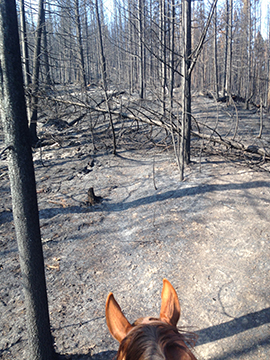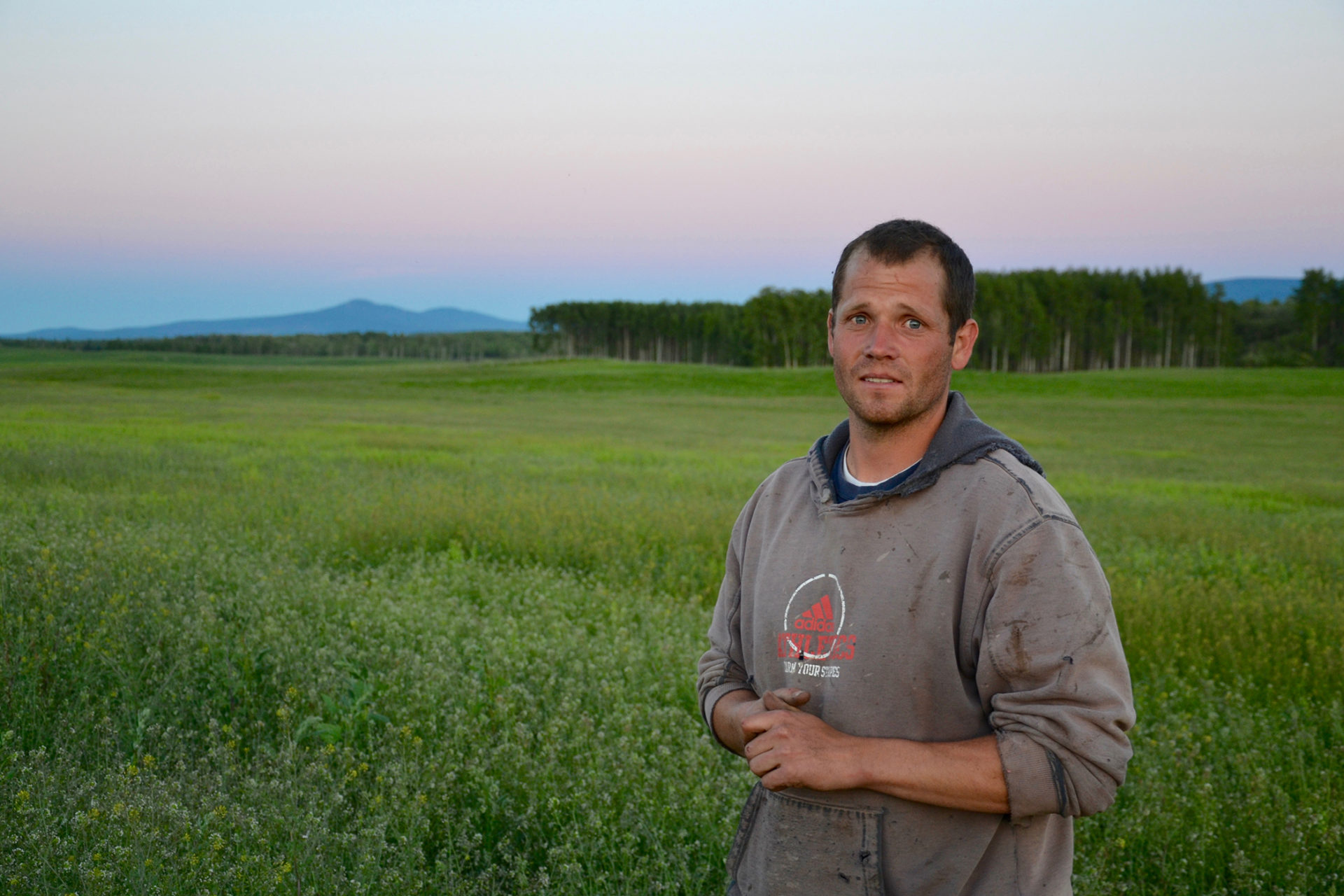KAMLOOPS – With a record wildfire season continuing to burn its way across the province, producers in affected areas are starting to take stock of the damage and plotting a path forward.
“There’s still a lot in the mix,” says Kevin Boon, executive director of the BC Cattlemen’s Association. “We can’t begin to get out on the burned range in a meaningful manner, so we have to wait for cattle to come in before we can assess the losses and injuries.”
While the fires displaced close to 50,000 people at their peak, animals typically at home on the range are returning underweight, often suffering burned hooves, blisters, smoke inhalation and lung damage. Hundreds more are unaccounted for.
“We’re not going to have an accurate count on our losses until the snow flies,” says Boon. “Some of these fires may not be out by spring. There’s a lot of work in front of wildfire services and our ranchers for the foreseeable future.”
The federal and provincial agriculture ministers met August 15 to discuss assistance through the AgriRecovery disaster assistance program. Collaboration between provincial ministry staff and BCCA led to a proposal being sent to Ottawa shortly after.
Speaking at Genome BC on August 15, federal agriculture minister Lawrence MacAulay acknowledged the devastation wildfires had caused the agriculture industry in BC, and pointed to existing business risk management programs as options for producer supports.
“We’d be very open to applications and dealing with them as fast as possible,” he said, referring to the AgriRecovery program. “There’s a process that has to take place, and when that takes place, I can assure you that the government of Canada will be moving as quickly as possible.”
BC Minister of Agriculture, Lana Popham, is optimistic about increased support from Ottawa, and pointed to the announcement of $6 million from the Ministry of Transportation and Ministry of Forests for the replacement of highway fencing, in addition to the $2.2 million announced earlier this summer by the BC Ministry of Agriculture.
“Because it’s such a massive disaster, we just have to start in the areas that need it first, but I think that the cattlemen’s association is extremely happy with the support that we’re showing and the speed at which we’re responding.”
“The application will look at this year and next year’s needs,” explains Boon. “Things like feed and vet costs are expected to be covered, as well as some costs for getting some of the infrastructure in place for animal health and welfare needs like getting water supplies back into these places and rebuilding handing centres.”
Replacing irrigation infrastructure, assistance with transportation costs for feed, costs to reestablish breeding herds, and compensation for mortalities are all included in the proposal.
“We also put in some labour costs for rebuilding some of the private fences due to the extent of these fires and the amount of fencing lost,” he says, acknowledging that many of these fences were built over years, and rebuilding them right away will be physically and financially difficult. “We don’t know if that will be accepted or not, but we’re optimistic.”
Overall, Boon is pleased with the provincial government’s response.
“The staff have been absolutely amazing to work with. There are so many different aspects we’ve been dealing with, and they all have our best interest at heart,” he says. “Part of this will be post-fire recovery. We need to look at how we can make it so we can better adapt to the future, and make it worthwhile for these producers to re-establish their businesses.”
Big picture recovery
As the province looks at the longer-term recovery of the millions acres that have burned, there is an opportunity for consulting with groups who have interests on that land, including agriculture, forestry, mining and recreational interests to rebuild and replant strategically.
“In this and in every crisis we feel there’s an opportunity,” says Boon, pitching a landscape-level planning approach. “We’ve seen where irrigation, agriculture and hay has been a huge asset on stopping the movement of some of these fires. We should be doing some strategic planning on how to reestablish the grass and create protective greenspaces and rebuild our herds.”
Boon pitched the approach in a recent meeting with Delta MP Carla Qualtrough, who is overseeing federal recovery efforts for this year’s BC wildfires.
“When I started explaining some of our thoughts on proper placement of grass and trees, she was extremely interested,” he says. “We’re enthusiastic that we are being listened to. This is something that we start working on now. I think it will be extremely beneficial to us.”
However, it’s not something the ranching sector can do on its own.
“We need to be at the table as well as everybody else and plan this properly,” he says. “How are we going to plan with the stakeholders at the table providing input for that land for next 100 to 150 years and set out a plan for it? This is the future of our industry.”
With files from Peter Mitham


 Alfalfa winterkill puts chill on Nechako Valley
Alfalfa winterkill puts chill on Nechako Valley